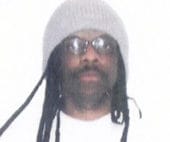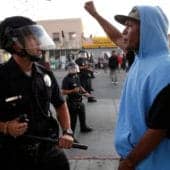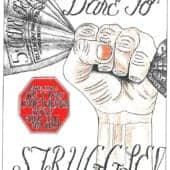Search
Heshima Denham - search results
If you're not happy with the results, please do another search
Free Speech Society: Forum for prison activists inside and out
The Free Speech Society (FSS) is primarily a movement to defend and preserve the rights of imprisoned activists to inform society of the social contradictions of the prison industrial slave complex in hopes of educating the people not only to the existence of these social ills but their impact on their daily lives. Join us in this historic effort and support the FSS with your time, talent and treasure.
Grant ‘Strategic Release’ to Abdul Olugbala Shakur
A petition for Strategic Release, a groundbreaking initiative to free prisoners with a record of service to their communities, will for the first time be presented to the Parole Board April 2, 2015, on behalf of Abdul Olugbala Shakur. A two-sided petition form to print out, sign and circulate is posted below. Signed petitions must be returned in time to send them to the Parole Board by April 2. An online petition is also available.
Mission Statement of the Free Speech Society
The Free Speech Society is a movement that is dedicated towards protecting and defending the First Amendment rights of imprisoned activists. As imprisoned activists, we are embedded reporters for the people. We are the eyes and ears for the people – for the taxpayers – articulating the human atrocities that plague the prison industrial slave complex with impunity in your name.
Prisoners’ Agreement to End Hostilities as the basis for the abolition of ‘legal’ slavery
On Oct. 10, 2012, the Pelican Bay D-Short Corridor Collective, men from various cultural groups and walks of life, put into effect the historic “Agreement to End Hostilities,” perhaps the single most significant “door to genuine freedom” opened in American society in recent human history. What makes it so significant is not simply its motive force but, more importantly, its true potential for our collective liberation as a society.
On racism, resistance and state violence: a discussion on the politics of greed and...
Greetings, Brothers and Sisters. The events taking place in Ferguson, Missouri, present us with yet another opportunity to address the inhumanity of racism. But the country will again not take advantage of it because we will continue to treat this act of inhumanity as though it is an isolated incident and not an act that flows from the very structure of this nation.
Power concedes nothing, Part 2: a discussion on retaliation, censorship and fascism in the...
Often when citizens of this nation think of “state repression,” images of Egypt, North Korea, Apartheid Palestine or Nazi Germany immediately spring to mind. U.S. state controlled media has become practiced at flooding our airwaves and attitudes with images of violent retaliation and systematic repression of dissent in other nations as a means to obfuscate the U.S. state’s engagement in identical activity in its own society.
Calipatria riots need to cease and unity needs to spread
Men at Calipatria on general population yards A, B and C can show the same courage as the hunger strikers, who are honored around the world, by pledging to respect the Agreement to End Hostilities and stop all fighting and riots between racial groups. The Agreement must continue to hold within all California prisons and unity needs to spread across the state. Only then can justice be won.
Open letter to Assemblyman Tom Ammiano from prisoners in solitary confinement in Corcoran State...
We write out of concern for the manner in which certain aspects of CDCR’s Step-Down Program (SDP) are being implemented, specifically, self-directed journals and cognitive behavior therapy. Because the aim of these components is to change and restructure the subject’s thought processes, it is a mental health issue, which requires the involvement of mental health professionals in its implementation and oversight.
Open letter to Sen. Loni Hancock from prisoners in solitary confinement in Corcoran State...
We write out of concern for the manner in which certain aspects of the step-down program (SDP) are being implemented by the CDCR, specifically, self-directed journals and cognitive behavior therapy. Because these components have to do with changing and restructuring the thought processes of people, they involve mental health issues and require the involvement of mental health professionals in their implementation and oversight.
Chokwe Lumumba: Dare to struggle, dare to win!
On March 8, hundreds of people, especially from the South and particularly Jackson, Miss., came to mourn and reflect on the life of Mayor Chokwe Lumumba, who died suddenly on Feb. 25 at the age of 66. Starting with a March 5 tribute at the historically Black college, Jackson State University, Mayor Lumumba’s life was memorialized for several days, ending with the masses lining the streets for his burial motorcade. A collection of tributes to the late great mayor of Jackson, Miss.
Power concedes nothing: A discussion on CDCr’s insidious regulatory semantics and judicial collusion in...
Our struggle to abolish SHU torture units is inextricably linked to the broader struggle to seize cultural hegemony in the U.S. from the ruling class and its tool, the state. Our collective efforts have repeatedly exposed the state’s contradictions and sparked the people’s appetite for freedom and new social relationships. These activities undermine the reactionary character structure upon which authoritarian society is based. These actions are thus revolutionary.
Seven months after historic California prison hunger strike, opponents of solitary confinement prepare for...
Tomorrow, California lawmakers will hold a hearing about the use of solitary confinement inside its state prison system. February marks seven months since people incarcerated throughout California embarked on the mass hunger strike that has drawn legislative attention to prison conditions. The CDCR released new proposed regulations around its gang policies, and it points to changes already made. Accounts from former hunger strikers suggest that change is slow in coming.
Declining a deal with the devil: Coercive journaling required to ‘step down’ from solitary...
Since implicit in making it a requirement that people participate in those programs available in each step and that any failure to do so will result in a person being moved back to Step 1 until that person agrees to subordinate him/herself to the dictates of Section 700.2 (self-directed journals), the cognitive restructuring/brainwashing program is, clearly, mandatory.
Legislative alert: CDCR’s Step-Down Pilot Program is in fact systematic, mandatory brainwashing
There is a matter of some urgency that should be passed along as broadly as possible, because it is just that serious. We issued a statement, “Creating broken men, Part 2,” where we voiced our outrage at the inclusion of the mandatory brainwashing components of Section 700.2 of the CDCR’s Step Down Program (SDP.) Since that time several things have developed.
Corcoran hunger strike negotiations: an extreme form of political discourse
To those of you familiar with the domestic torture program of the CDCR and the ongoing protracted struggle to realize the five core demands, the state’s loose relationship with the truth comes as no surprise. For those of you just gaining familiarity with this social ill, what follows should prove helpful in providing you with a greater insight into the dynamics of power relationships in the U.S.
Agreement to End Hostilities benefits both the streets and the prisons
On Aug. 12, 2012, the Pelican Bay D-Short Corridor Collective issued the historic Agreement to End Hostilities (AEH) in all prison and juvenile facilities and called for its extension to our communities. The strategic and material benefits for our ongoing human rights struggle, thousands of prisoners and their families, is obvious. Less obvious is the unprecedented opportunity for social progress and community development represented by this AEH.
Corcoran SHU hunger strike: The riot team was ready for full-scale war
Here at Corcoran State Prison, 4B1L Short Corridor on July 11, 2013, at approximately 11 a.m., Sgt. Vogel and two of his COs (correctional officers) entered the Short Corridor with a list of names of guys from all racial groups and went door to door informing them that they were moving immediately – no ifs, ands or buts – willingly or by force!
Call and response: Supporter responds to Corcoran SHU hunger strikers’ plight with scathing letter...
Call: We have not been to yard in almost two weeks. We have not been allowed to shower in a week. We received no medical attention. No weigh-ins, no vital signs checks – nothing. Response: Some of the people on hunger strike are older men, and they have medical issues. Your display of power is totally out of place. Your purposeful neglect of their human rights and dignity seems to me shameful.
Hunger strike rally at Corcoran Prison: The sound before the fury
It is hot enough in Corcoran, California, to melt people. That being said, it still wasn’t hot enough to keep upwards of 400 people from braving 103-degree weather to mobilize and rally at Corcoran State Prison in support of over 30,000 prisoners on hunger strike in California. The immediate goal is to stop the cruelty and torture that being held in isolation represents. The long-range objective is liberation.
California prisoners launch new hunger strike to protest solitary confinement
Hundreds of people held in California prisons are expected to launch their third large-scale hunger strike in two years today. The current strike, announced by leaders at Pelican Bay State Prison on Feb. 14, is seen as a resumption of the large-scale strikes in June and September 2011, when thousands of prisoners across the state stopped eating for days or weeks in order to press for the five demands laid out by the strike organizers.

 Store
Store











